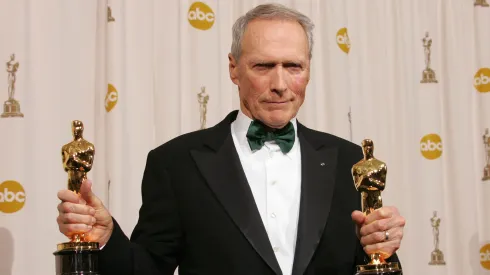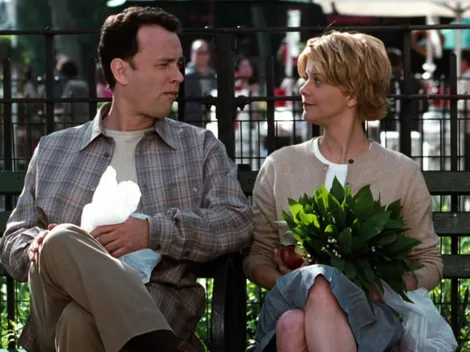Clint Eastwood’s seamless transition from actor to award-winning director remains one of Hollywood’s most inspiring career evolutions. Yet he’s far from the only performer to make the leap with lasting impact. Over the years, numerous actors have proven their creative range by taking control behind the scenes—crafting critically acclaimed films that rival their on-screen achievements. Whether driven by artistic ambition, creative freedom, or a desire to tell stories their own way, these stars redefined what it means to succeed in Hollywood.
Clint Eastwood

Getty Images
Clint Eastwood began his career as the iconic “Man with No Name” in spaghetti westerns and later as the tough cop Harry Callahan in the Dirty Harry series. He quietly shifted into directing in the early 1970s with films like Play Misty for Me, eventually winning Academy Awards for Best Director and Best Picture for Unforgiven (1992) and Million Dollar Baby (2004).
Robert Redford

Getty Images
Robert Redford achieved stardom as one of Hollywood’s leading men, then made a critically acclaimed directorial debut with Ordinary People (1980), a film that earned him the Oscar for Best Director. He built a respected career behind the camera, often tackling character-driven dramas rather than blockbusters. His transition demonstrated how an established star can quietly redirect his creative ambitions into directing. His legacy lives on.
George Clooney

Getty Images
George Clooney was long known for his acting in films and television, but gradually embraced directing and producing with films like Good Night, and Good Luck (2005) and The Ides of March (2011). His move into the director’s chair was subtle — not loudly billed as a “star-turning-director” moment — but over time he established himself as a filmmaker with a distinct voice and political sensibility.
Ben Affleck

Getty Images
Ben Affleck’s evolution from actor to director is one of the most striking in recent decades. After early acting success, he made his directorial debut with Gone Baby Gone (2007), then followed with The Town (2010) and the Oscar-winning Argo (2012). Affleck quietly stepped behind the camera and found a new career trajectory, proving a star can pivot into a respected directing role without constant tabloid fanfare.
Greta Gerwig

Getty Images
Greta Gerwig first gained attention as an actor and writer in the indie film scene, appearing in Frances Ha and Mistress America. Her transition to directing was seamless, marked by the Oscar-nominated Lady Bird (2017), a semi-autobiographical coming-of-age story that showcased her keen observational humor and emotional insight. She solidified her reputation with Little Women (2019) and Barbie (2023), the latter becoming critically and commercially successful.
Mel Gibson

Getty Images
Mel Gibson rose to international fame as an action star in the Mad Max and Lethal Weapon series, but his move into directing revealed an entirely new creative depth. His directorial debut, The Man Without a Face (1993), was followed by Braveheart (1995), which won five Academy Awards including Best Director. Later works like The Passion of the Christ (2004) and Hacksaw Ridge (2016) solidified his status as a filmmaker unafraid of intense themes and visceral storytelling. Despite controversy, Gibson’s directing career remains remarkably successful and influential.
Olivia Wilde

Getty Images
Olivia Wilde transitioned from on-screen roles in House and Tron: Legacy to an acclaimed directing debut with Booksmart (2019), a witty, sharply observed coming-of-age comedy that earned widespread praise. She followed it with Don’t Worry Darling (2022), a bold and visually striking psychological thriller that cemented her as a filmmaker unafraid to take risks. Beyond her own projects, Wilde has become a prominent advocate for women in film, representing a new generation of actors redefining success behind the camera.
Jordan Peele

Getty Images
Known initially for his sharp comedic work on Key and Peele, Jordan Peele surprised Hollywood by turning to horror with Get Out (2017). The film not only earned him an Academy Award for Best Original Screenplay but also redefined what socially conscious genre filmmaking could be. Peele followed with Us (2019) and Nope (2022), both critical and commercial successes. Without flashy self-promotion, he’s built a reputation as a visionary director capable of blending entertainment with incisive cultural commentary.
Edward Norton

Getty Images
Edward Norton is primarily known for his performance work as an actor, but he made a foray into directing with his film Keeping the Faith (2000). While his directing output remains modest compared to his acting career, the effort underscores how even actors known for intense performances can quietly explore a different creative direction. Norton’s directing has allowed him to apply his analytical and narrative instincts in new ways.
Jodie Foster

Getty Images
Jodie Foster began acting at a young age, earning acclaim for roles in Taxi Driver and The Silence of the Lambs, but her career behind the camera has been equally impressive. She made her directorial debut with Little Man Tate (1991), a sensitive drama about a gifted child, and later directed Home for the Holidays (1995) and The Beaver (2011). Foster has also directed acclaimed television episodes for Orange Is the New Black and Black Mirror. Her directing style mirrors her acting.





